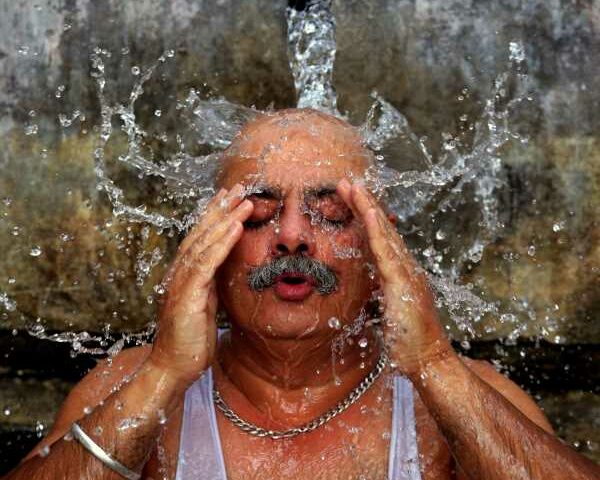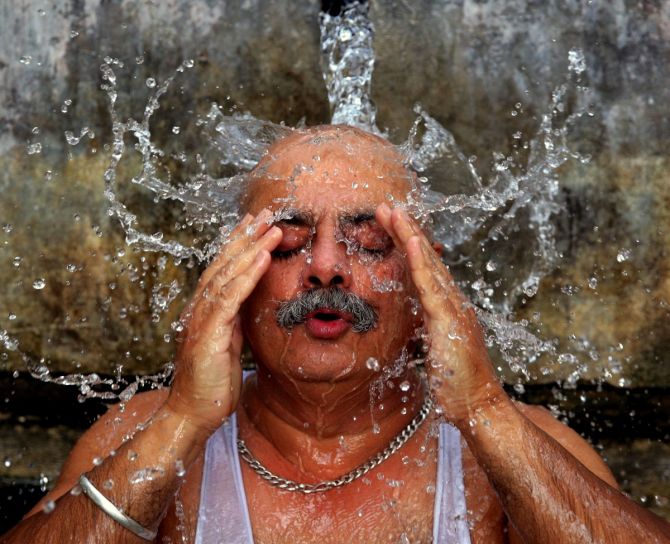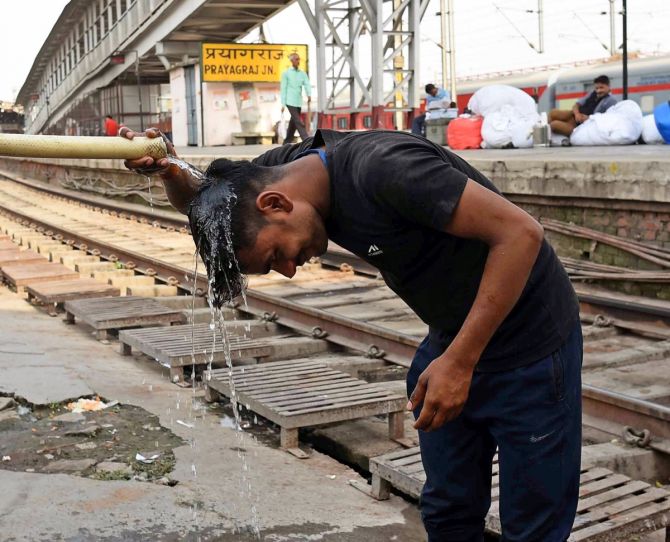‘Because of global warming, the chances of heatwaves like this are much higher.’
Temperatures soared to 49 degrees in Pakistan during the heat wave in April, which is said to be the hottest temperature recorded on earth in April!
It was the hottest March for Indians in the last 122 years, and it was the hottest April for the people of Pakistan in the last 60 years.
Reports say the heat conditions has killed 25 people in India and 65 in Pakistan so far.
What is the reason for these unprecedented heat conditions in the sub-continent?
“I would say this heatwave is a natural event, but got intensified because of global warming. Yes, it might not have been so severe if not for global warming,” Climate Scientist and IIT-Gandhinagar Professor Vimal Mishra tells Rediff.com‘s Shobha Warrier.
The first of a two-part interview:
Unprecedented heatwaves in March and April were followed by two cyclones in the Indian Ocean. Reports say the heatwave has come back. Are these the effects of global warming?
Whenever events like these happen, we attribute them to just climate change and global warming. But many times, they happen because of several factors.
We see that it is not located in just one region, it spreads across entire Asia not just in India, Pakistan and Afghanistan.
It has manifested itself to such proportions because of climatic variability.
I would say this heatwave is a natural event, but got intensified because of global warming. Yes, it might not have been so severe if not for global warming.
If you look at past records, you will see that in some years the temperature in the same period was normal, sometimes it went higher, and sometimes it was even cooler.
This is because of natural climatic variability, and there is nothing alarming about small variances.
But because of global warming, the chances of getting heatwaves like this are much higher compared to say, 1950 or even before that.
So, you cannot say that events like this happen solely because of climate change.
If that is the case, you may experience similar heatwave conditions next year too.
Do you mean to say, it may not be a regular phenomenon?
Not necessarily. See, this happened once in the last 70 or 100 years.
We have not witnessed it in the last two decades for sure even though we have been experiencing climate change and global warming.
But heatwaves like this are likely to occur more often in the future as this happened because of large-scale climate variability which got intensified due to climate change.
We cannot say it will be a regular phenomenon unless it occurs in the next 10 years and the temperature continues to rise regularly.
Is this heat wave in any way connected to La Nina? Many scientists are writing about a connection.
I know there are scientists who are talking about it, but so far, they have not established a real connection between La Nina and the heatwave.
Generally, heatwaves in India occur more when the condition is opposite, that is, when you have El Nino. La Nina temperatures are expected to be cooler than normal.
How La Nina might have influenced this heatwave is because we see some other climate factors too which are linked to La Nina.
Like?
Changes in the Arctic region, the Antarctic region and the Southern Hemisphere.
So, La Nina also affects the global climate system like El Nino.
You know that during El Nino, you experience higher temperatures. But because of the La Nina effect, some conditions might have got created which are partly responsible or associated with this heat. But you have to understand that this is not a scientifically established fact.
Scientists are working on it, and we have to wait for the results of the studies.
Right now, it is too early to say with 100% confidence that there is a connection between La Nina and the heatwave.
Feature Presentation: Rajesh Alva/Rediff.com
Source: Read Full Article




